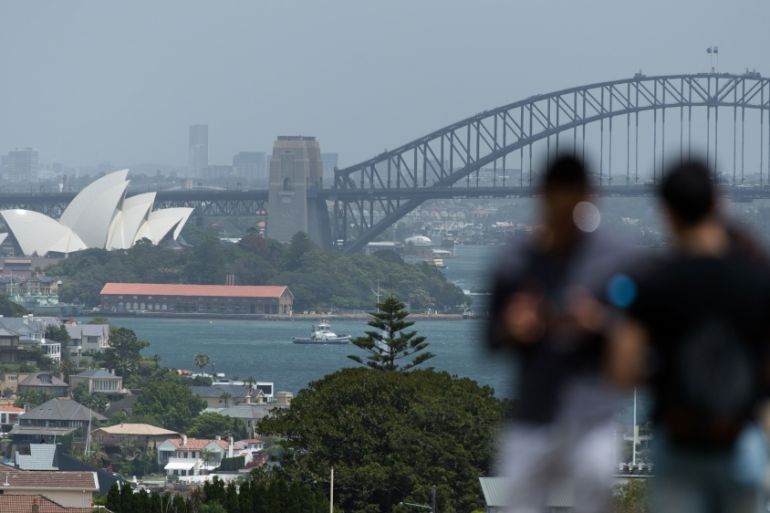Cartel currency trading claim in Australia tipped to exceed $69m
Five large investment banks are being accused in Australia of colluding to distort foreign exchange rates.

A class action lawsuit has been filed in the federal court of Australia against five major investment banks for allegedly rigging currency exchange rates.
The five international banks – UBS (based in Switzerland), JPMorgan and Citibank (based in the United States), and Barclays and the Royal Bank of Scotland (in the United Kingdom) – have all been accused of engaging in illegal cartel conduct between January 2008 and October 2013.
Keep reading
list of 4 itemsKey takeaways from Xi Jinping’s European tour to France, Serbia and Hungary
Air Vanuatu goes into liquidation, thousands of passengers stranded
‘We have no option’: An election protest brews in Indian coffee capital
The Australian case will partly rely on findings from international investigations and admissions made during those inquiries. Earlier this month, JPMorgan, Barclays, RBS and Citibank were among banks fined $1.2bn by the European Union for rigging the foreign-exchange market.
Kimi Nishimura, a principal lawyer at the law firm Maurice Blackburn, told Al Jazeera that she expected the Australian case to exceed 100 million Australian dollars ($69m) – a cost that comes on the heels of a $2.3bn payment in the US and $100m class action payment in Canada.
“It’s very early stages, but we do anticipate it will be very large,” Nishimura said.
UBS, Citibank and JPMorgan declined to comment on the case. Spokespeople from RBS and Barclays did not respond to phone requests for comment during a UK holiday.
The Australian foreign exchange market is the eighth largest in the world.
The group claim’s lead plaintiff is a Sydney-based company that imports dental and medical equipment under the trading name Wisbey Dental.
“Australian businesses shouldn’t pay more because the banks got together to work out how to make more profits for themselves. It’s hard to take individual action against this kind of price rigging because the price increases are small, but when repeated over thousands of transactions they make a real difference to currency prices,” managing director Greg Wisbey said in a statement.
“I rely on forex trading because my business needs to trade with international companies, but to have been subjected to an uneven playing field and paying an inflated price for no good reason, well that’s just unfair and hurts Australian businesses like mine.”
In a statement, Maurice Blackburn Lawyers claimed there was systematic manipulation to “boost profits at the expense of Australian businesses and investors”.
‘The cartel’
The Australian claim mentions transcripts of internet chat rooms filed as part of the US class action suit. The chat rooms were colourfully named ‘The Cartel’, ‘The Mafia’, ‘One Team’, ‘One Dream’, ‘The Players’ and ‘The Three Way Banana Split’, among other monikers.
Allegedly, foreign-exchange traders used the chat rooms to disclose confidential customer information and make agreements with traders from other institutions to coordinate foreign-exchange trading “in a manner designed to influence the WMR Fix, ECB Fix, and other FX benchmark fixes and market prices generally”.
In addition, the traders are accused of concealing their conversations through the use of codewords and controlling and restricting entry into the chatrooms.
Another blow to confidence
The case comes after a damaging report – issued by Australia’s Royal Commission into Misconduct in the Banking, Superannuation and Financial Services Industry – recommended sweeping reforms to the Australian sector.
Over months of public hearings, the Royal Commission heard of people being charged fees for services that were never received. In some cases, customers were charged fees even after they had died.
In its final recommendations in February, the Royal Commission referred 24 companies to regulators for possible criminal or civil action, including some of the country’s biggest financial institutions.
It also recommended greater oversight of regulators with the creation of an independently chaired body to hold them to account.
Nishimura said Australian investors and businesses had been cheated.
“I think this is just another example of people finding out post-fact that the institutions they’ve relied on, they’ve been ripped off by,” she said.